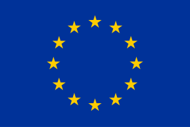RELACS webinar series on organic contaminants in recycled fertilizers and their fate in soil-plant systems
The area under organic production is growing, leading to an increased demand for nutrient sources suitable for organic agriculture. FiBL is organizing a webinar series in the frame of the RELACS project, themed “Organic contaminants in recycled fertilizers and their fate in soil-plant systems: Knowledge gathering and discussion with organic stakeholders”.
The workshop, taking place March-April 2021 in five two-hour sessions, brings together researchers in nutrient recycling and organic stakeholders.
The webinar series will be the opportunity to gather current knowledge on potential risks associated with using recycled fertilizers, learn about their fate in soil–plant systems, examine approaches for a sound risk assessment and discuss options for closing nutrient cycles between society and agriculture as well as their acceptability for organic agriculture.
Short overview of the webinar series
- Wednesday 3 March: Introduction – Setting the scene
- Thursday 11 March: Organic contaminants and other risks
- Wednesday 17 March: How to recycle nutrients from household wastes and the food industry
- Monday 12 April: How to recycle nutrients from human excreta
- Thursday 22 April: Socioeconomy and final discussion
Register to the webinar series by emailing [email protected].
Have a look at the workshop description and the full programme.
Visit the RELACS website to learn more and follow the latest project’s developments on Twitter and Facebook using @RELACSeu and #RELACSeu.
RELACS seeks to promote the development and adoption of environmentally safe and economically viable tools and technologies to reduce the use of external inputs in organic farming systems. IFOAM Organics Europe is responsible for the communication and dissemination of project results as well as the coordination of the science-practice-policy dialogue.
Programme
– Welcome: aims and organizational aspects / Else Bünemann, FiBL
– Nutrient management in organic agriculture: principles, demand, challenges / Marie Reimer, Hohenheim University
– Recycling nutrients from society in organic farming in Denmark: Discussions and developments in the last 20 years / Jakob Magid, Copenhagen University
– Heavy metal contamination of agricultural soils: sources, fate and impact / Erik Smolders, KU Leuven
– Discussion / All participants
– Welcome and brief recap from day 1 / Else Bünemann, FiBL
– Organic and emerging contaminants in waste streams, bioresources, behaviour in the soil-plant system and risk assessment / Stephen Smith, Imperial College London
– Fate and impact of microplastics in the environment / Moritz Bigalke, Bern University
– Sanitisation of sewage and organic waste / Annika Nordin, SLU
– Discussion / All participants
– Welcome and brief recap from previous days / Else Bünemann, FiBL
– Anaerobic digestion: opportunities for nutrient recovery from food and other societal waste including effects on soil quality / Kurt Möller, Hohenheim University
– Effects of anaerobic digestion and composting on antibiotics and associated ecotoxicological assessments / Elke Bloem, Julius Kühn Institute
– Benefits and challenges of marine-derived fertilisers / Anne-Kristin Loes, Norsoek
– Nutrient recovery from digestates / Erik Meers, Gent University
– Discussion / All participants
– Welcome and brief recap from previous days / Else Bünemann, FiBL
– Nutrient recovery from human excreta / Robin Harder, SLU
– Antibiotic resistance genes in waste streams, recycled fertilizers and associated risk assessment / Kristian Koefoed Brandt, Copenhagen University
– P recycling from sewage sludge ash / Lukas Egle, Wien
– Urine-based fertilizers / Kai Udert, Eawag
– Discussion / All participants
– Welcome and brief recap from previous days / Else Bünemann, FiBL
– Life-cycle assessment of recycling technologies / Ludwig Hermann, ProMan
– Acceptability of inputs for EU organic production: legal base, major stakeholders and processes / Bernhard Speiser, FiBL, and Frank Oudshoorn, SEGES
– Cases for debate / Anne-Kristin Loes, Norsoek
– Discussion: Required system changes, acceptability of recycled nutrients in organic farming; knowledge gaps / All participants
– Final synthesis and wrap-up / Else Bünemann, FiBL, and Jakob Magid, UCPH


